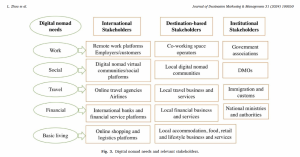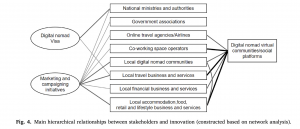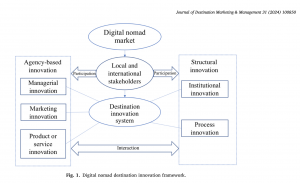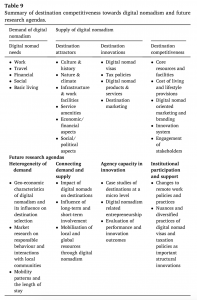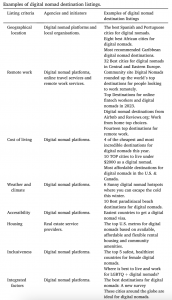New paper on Digital Nomads
Zhou, L., Buhalis, D., Fan, D., Ladkin, 2024, Attracting digital nomads: Smart destination strategies, innovation and competitiveness, Journal of Destination Marketing & Management, Volume 31, March 2024, 100850, https://doi.org/10.1016/j.jdmm.2023.100850
Highlights
Digital nomads are an attractive market segment for global destinations
Smart destinations cater for the work, leisure & lifestyle needs of digital nomads
Digital nomad destinations innovate at structural and agency levels
International, destination-based & institutional stakeholders involve in innovation
Digital nomad visa regimes reinforce the global north and global south divide
Destinations assertively portray digital nomads as a homogenous group
Abstract
Digital nomadism, as a new form of tourist mobility, brings opportunities and challenges for destination management. To attract this new market, smart destinations need to innovate to develop readiness and competitiveness. This research examines 225 digital nomad destination web articles, from multiple sources and different continents. The study aims to identify innovative strategies and practices using semantic content analysis and hierarchical network analysis. It explores relevant stakeholders and their importance, and pinpoints digital nomad trends. Findings suggest that smart destinations cater for the work, travel, social, financial and basic-living needs of digital nomads. These are different from those of short-term leisure and business tourists. Destinations tend to portray digital nomads as a homogenous group, although different segments have been identified. The long-term impacts of digital nomads on local economies and societies have yet to be fully explored. The theoretical significance of this study lies in the provision of an agency-structural perspective of destination innovation and competitiveness. Practically, the study contributes to digital nomad management and marketing within smart tourist destinations.
